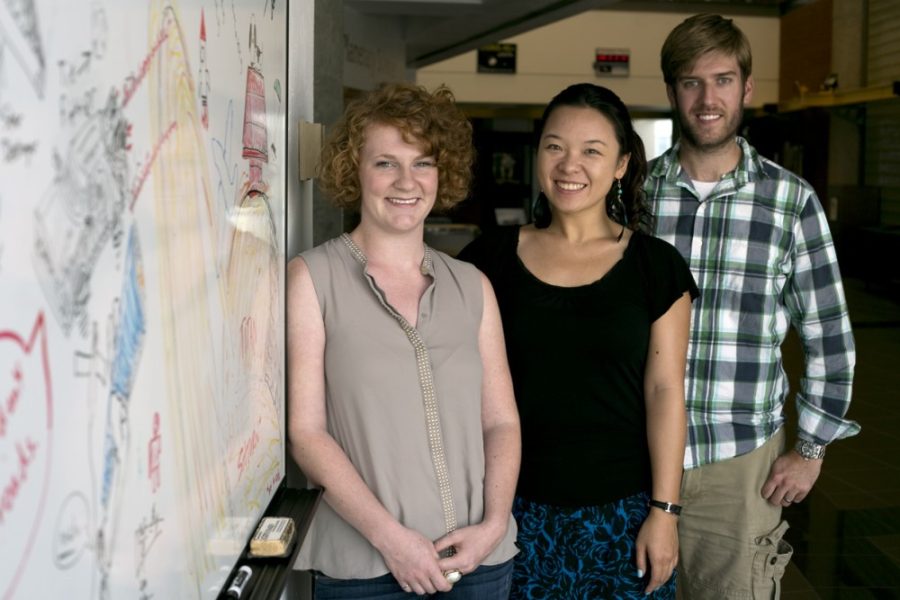On Saturday night, lawn chairs will be scattered across Highland Commons, occupied by people with their eyes fixed on the screen as Bruce Willis and Ben Affleck try to prevent an asteroid from blowing Earth into a million pieces.
Then a panel of scientists will explain how that would never happen.
“NASA would never send a bunch of oil driller guys to go and save the world,” said Michelle Thompson, a doctoral student in lunar and planetary science, when asked about the most infuriating part of the movie “Armageddon.”
Yet when Thompson and fellow planetary science graduate students Rob Zellem, Cecilia Leung and Kelly Miller were choosing which movie to show for the first Starlight Science Cinema of the semester, they knew it had to be Armageddon.
“It’s a good one because it’s related to the department,” Thompson said, “but also there’s a lot of things in it that are just plain wrong. So it’s pretty fun to watch, as a scientist.”
The group decided to give the public the opportunity to watch movies as scientists with their new Starlight Science Cinema series, which was inspired by movie nights in the park in Zellem’s hometown of Nashville, Tenn.
“[I thought] it would be cool to have something like that here on campus where you have something open to everyone who wants to come in,” Zellem said, “and also to be able to showcase all the cool science here on campus.”
The group hosted its first Starlight Science Cinema in July, with a showing of “October Sky.” That showing attracted around 60 people, but now that students are back on campus, members said they hope they’ll be able to get 100-200 people to come out for “Armageddon.”
On Saturday, “Armageddon” will be linked to research at the UA through Dante Lauretta, professor of lunar and planetary science. Lauretta is working on a mission called OSIRIS-REx, which will send a spacecraft to a nearby asteroid that has a 1 in 1000 chance of hitting Earth in order to learn more about it.
“We’re kind of dealing with the same topic, in that sense of an asteroid impacting the earth and what could be done in our case to understand the probability that the event will occur,” Lauretta said.
Lauretta will give a talk about his research before the showing, and viewers will be able to ask questions during the movie via Twitter and Facebook. A question and answer session will be held during intermission so that a panel can address the realities and dramatizations of the movie.
“It’s basically bringing science to the community and basically dispelling some of the myths that popular culture has brought on about science,” Thompson said.
The group worked with the College of Science and Students for Exploration and Development of Space in an attempt to reach out to and educate the public about scientific research at the UA.
“I hope to get people locally excited and inspired about what’s going on here and maybe inspire the next generation of kids to do what we’re doing now,” Zellem said.
Starlight Science Cinema is expected to become a monthly occurrence. While there may be plenty of movies about space that could be shown at Starlight Science Cinema, the organizers said they plan to pass the baton to the Geosciences and Astronomy departments as a way to expose the public to as much research happening at the UA as possible.
“We love science,” Thompson said. “We just want everyone to love science as much as we do.”
Starlight Science Cinema
Movie: “Armageddon”
Talk: Professor Dante Lauretta on the OSIRIS-Rex mission
When: Saturday
Where: Highland Commons
In the event of rain, the movie will move to the Kuiper Space Sciences building.
Snacks and refreshments will be available.









